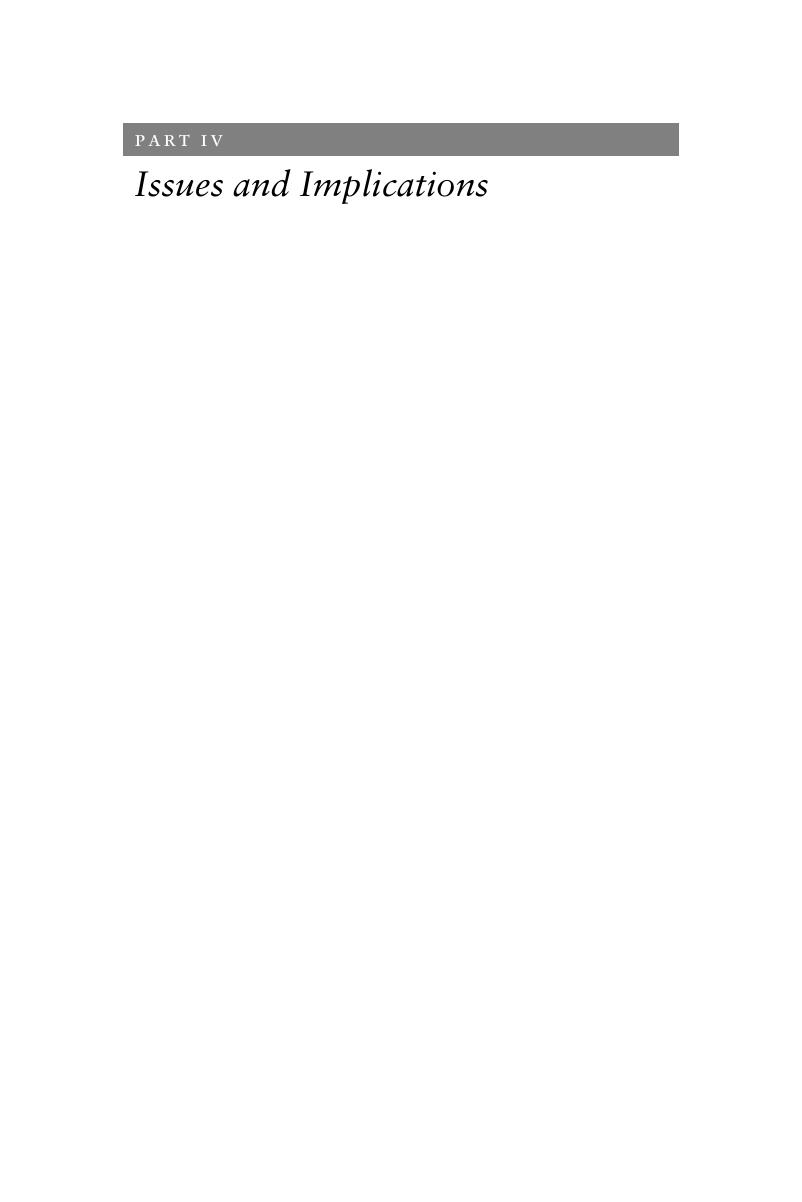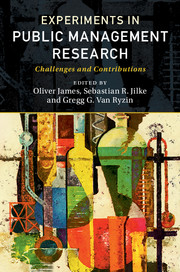Book contents
- Experiments in Public Management Research
- Experiments in Public Management Research
- Copyright page
- Contents
- Figures
- Tables
- Contributors
- Preface and Acknowledgements
- Part I Context
- Part II Methods
- Part III Substantive Contributions
- Part IV Issues and Implications
- Appendix Recommended Reporting Guidelines for Experiments in Public Management, a Checklist1
- Index
- References
Part IV - Issues and Implications
Published online by Cambridge University Press: 27 July 2017
- Experiments in Public Management Research
- Experiments in Public Management Research
- Copyright page
- Contents
- Figures
- Tables
- Contributors
- Preface and Acknowledgements
- Part I Context
- Part II Methods
- Part III Substantive Contributions
- Part IV Issues and Implications
- Appendix Recommended Reporting Guidelines for Experiments in Public Management, a Checklist1
- Index
- References
Summary

- Type
- Chapter
- Information
- Experiments in Public Management ResearchChallenges and Contributions, pp. 437 - 508Publisher: Cambridge University PressPrint publication year: 2017



